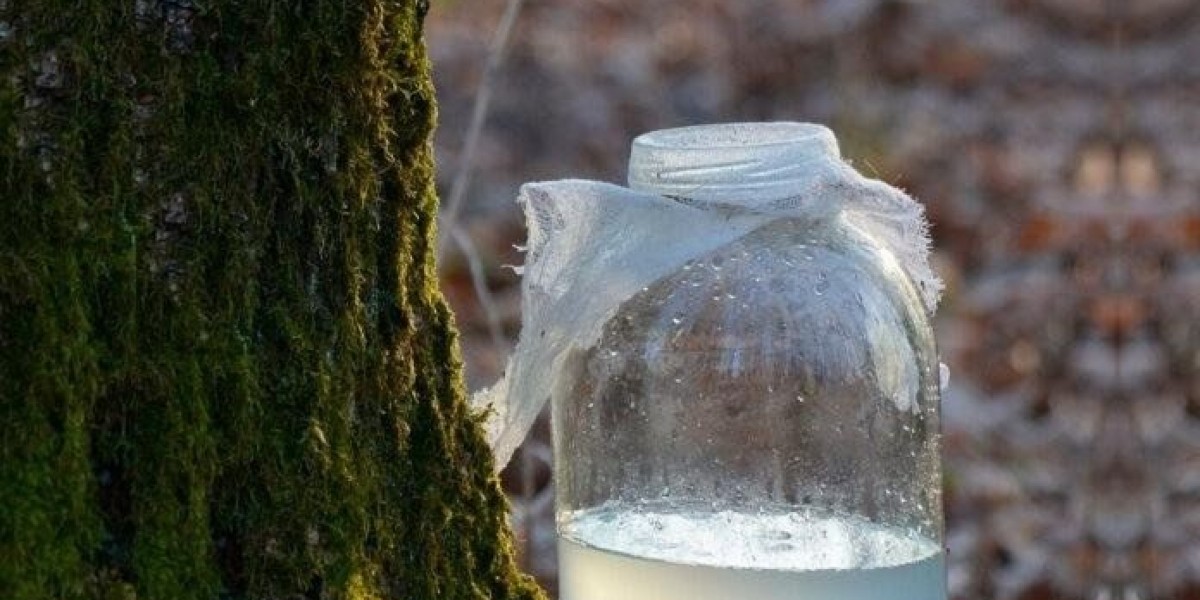The birch water market has shown remarkable potential in recent years due to the increasing consumer demand for healthy, organic beverages. However, certain restraints continue to hinder its growth and development. These limitations range from environmental factors to market competition and high production costs. Understanding these challenges is crucial for stakeholders looking to navigate and address barriers in the birch water market.
Seasonality of Birch Water Production
Birch water is typically harvested in the spring when the sap flows from birch trees. This seasonality of production limits its availability throughout the year, creating potential supply chain issues for companies that need to maintain a steady product offering. The timing and weather conditions play a critical role in the quantity and quality of birch water harvested. This can lead to unpredictable supply fluctuations, which may affect market stability and product availability.
High Production Costs
The production of birch water involves specialized equipment and labor-intensive processes. Extracting the sap, filtering it, and packaging it in a way that preserves its freshness require a significant investment in infrastructure and technology. These high production costs can result in retail prices that are higher compared to other beverage alternatives, limiting the price competitiveness of birch water in the market. For many consumers, the premium pricing might deter them from choosing birch water over more affordable options.
Limited Consumer Awareness
Despite its growing popularity, birch water still faces challenges related to consumer awareness and education. While health-conscious individuals are increasingly drawn to natural, organic beverages, a large portion of the general population remains unaware of birch water’s potential benefits. Without sufficient marketing efforts to educate the masses, it can be difficult for birch water brands to gain widespread adoption. Moreover, consumers may be hesitant to try new products without fully understanding the benefits, especially when compared to other well-established beverages such as coconut water or fruit juices.
Competition from Other Functional Beverages
The functional beverage market is highly competitive, with a variety of natural drinks vying for consumer attention. Products such as coconut water, aloe vera juice, and maple water also promote hydration and offer various health benefits. These alternatives often have more established market presence and consumer familiarity, posing a significant challenge to birch water. Brands offering other plant-based beverages may also present a higher degree of competition, especially in regions where these products are already widely accepted.
Lack of Standardization in Production
The birch water industry lacks clear standards or regulations for production processes. This inconsistency in manufacturing can lead to variations in product quality across different brands, which may affect consumer confidence. Without industry-wide guidelines to ensure consistency in taste, nutritional content, and quality, there may be hesitations among consumers to regularly purchase birch water. Additionally, some regions lack the infrastructure or knowledge to produce birch water to meet high-quality standards, further limiting market penetration.
Environmental Impact of Harvesting
Although birch water harvesting is considered sustainable compared to other natural resource extraction methods, it is not entirely free of environmental impact. The process of tapping trees can cause damage to the trees if not done responsibly, potentially affecting the health of the forest ecosystem. If not managed properly, overharvesting could lead to long-term damage to the birch tree population. This environmental risk could result in negative publicity for brands, especially as consumers grow more concerned about sustainability and ecological responsibility.
Consumer Skepticism Regarding Health Claims
Despite its health benefits, birch water has not been universally recognized as a "superfood" by all health experts. There is skepticism around some of the more exaggerated health claims made by marketers. For example, some brands promote birch water as a cure for various ailments, which may lead to consumer mistrust if these claims are not backed by sufficient scientific research. This skepticism can limit the market’s appeal, as consumers become more cautious about believing in products that promise health benefits without robust evidence to support them.
Regulatory Hurdles in Different Markets
Each country or region has its own regulatory standards when it comes to food and beverage products, including labeling, ingredients, and production practices. Navigating these regulatory environments can be a significant challenge for birch water producers, particularly when trying to enter new international markets. Stringent regulations and slow approval processes could delay product launches or increase operational costs. Additionally, discrepancies in food safety standards across markets can lead to complications in production and distribution.
Limited Availability of Raw Materials in Some Regions
Birch trees are primarily found in temperate regions, and while they are widespread in places like Scandinavia, Russia, and parts of North America, they are less common in tropical or subtropical regions. This limited geographical availability means that birch water producers need to rely on specific locations for raw material sourcing. As the demand for birch water increases globally, competition for access to these trees could lead to resource scarcity, especially if the industry scales rapidly without sustainable harvesting practices.



